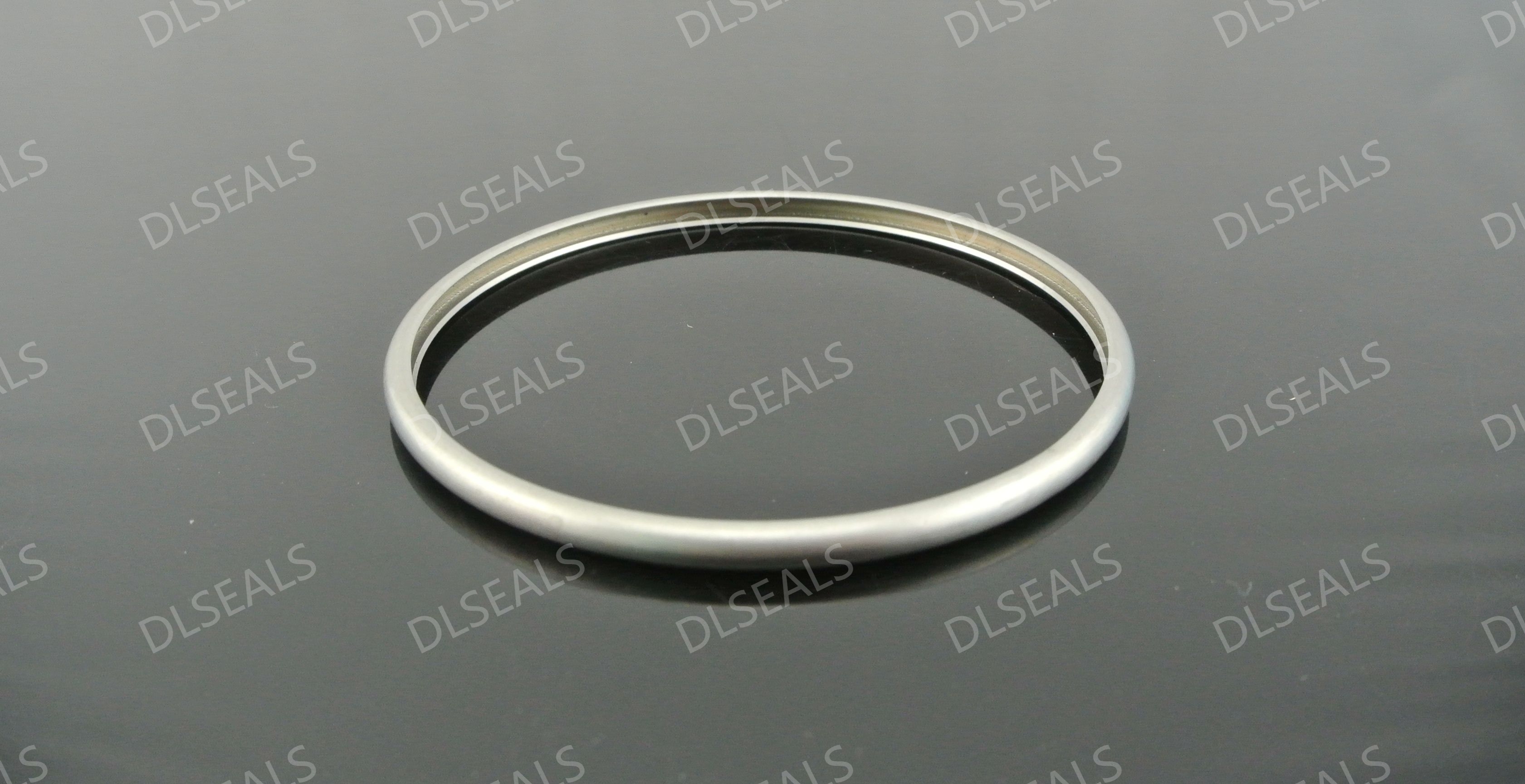News
A2024-09-04

Sealing rings play a vital role in various mechanical equipment and systems, ensuring the sealing and working efficiency of the equipment. Metal sealing rings and rubber sealing rings are two common sealing options, each of which has different service life characteristics. This article will compare the service life of these two types of sealing rings from multiple aspects, including material properties, working environment impact, life assessment, and how to extend their service life.
1. The impact of material properties on service life
1.1 Metal sealing rings
Metal sealing rings are usually made of metal materials such as stainless steel, copper, and aluminum, which have the following characteristics:
High temperature resistance: Metal sealing rings can work stably at extremely high temperatures. They can usually withstand temperatures above 300°C, so they perform well in high temperature environments.
Corrosion resistance: Some metals, such as stainless steel, have excellent corrosion resistance, which can resist the erosion of chemical media and extend service life.
Mechanical strength: Metal materials have high strength and hardness, and can maintain stable sealing performance under high pressure environments.
However, metal sealing rings also have certain disadvantages:
Poor elasticity: The metal sealing ring has insufficient elasticity and cannot effectively compensate for the thermal expansion and vibration of the equipment, which may lead to a decrease in sealing performance.
Wear: In an environment with high friction or vibration, metal seals may wear out, affecting their service life.
1.2 Rubber seals
Rubber seals are usually made of materials such as nitrile rubber, fluororubber, and silicone, which have the following characteristics:
Good elasticity: Rubber seals have excellent elasticity and compression recovery, can adapt to the thermal expansion and vibration of the equipment, and maintain a good sealing effect.
Low cost: Compared with metal seals, rubber seals have lower manufacturing costs and better economy.
Wear resistance: Some rubber materials (such as polyurethane) have good wear resistance.
However, rubber seals perform poorly in the following aspects:
Poor high temperature resistance: Most rubber materials are prone to aging and hardening in high temperature environments, affecting their service life.
Limited chemical resistance: In chemical media such as strong acids and alkalis, rubber seals may be corroded, shortening their service life.
2. The impact of the working environment on service life
2.1 High temperature environment
Metal seals perform well in high temperature environments and can withstand temperatures up to 300°C or even higher. However, rubber seals are prone to aging at high temperatures and can usually only be used stably within a lower temperature range. Long-term exposure to high temperature environments will significantly reduce the service life of rubber seals.
2.2 High-pressure environment
Due to their high mechanical strength, metal seals can maintain stable sealing performance in high-pressure environments. Rubber seals may be compressed and deformed under high pressure, resulting in sealing failure.
2.3 Chemical corrosion environment
Metal seals, especially stainless steel seals, have good corrosion resistance and are suitable for environments with strong chemical corrosion. Rubber seals may be corroded in chemical media such as strong acids and alkalis, and have a short service life.
3. Life assessment method
3.1 Life assessment of metal seals
The life of metal seals mainly depends on the material's high temperature resistance, corrosion resistance and mechanical strength. By regularly checking the wear, corrosion signs and sealing effect of metal seals, its service life can be assessed. The actual working conditions should be considered in the design and material selection to ensure the durability of the seal.
3.2 Life assessment of rubber seals
The life of rubber seals is affected by factors such as temperature, pressure, chemical media and wear. By monitoring the aging degree, elastic change and sealing effect of the rubber seal, its service life can be evaluated. Regular inspection and maintenance can effectively extend the service life of the rubber seal.
4. Measures to extend the service life
4.1 Metal seal
Reasonable selection of materials: Select suitable metal materials according to the actual working environment to ensure its high temperature resistance and corrosion resistance.
Regular maintenance: Regularly check the wear and corrosion of the metal seal, and perform maintenance and replacement when necessary.
Optimize design: Consider the actual working conditions during the design stage, optimize the structure and materials of the seal to extend the service life.
4.2 Rubber seal
Choose suitable rubber materials: Select suitable rubber materials according to the working environment to improve high temperature resistance and chemical resistance.
Avoid overload use: Avoid using rubber seals in environments beyond the design range to prevent aging and wear.
Regular inspection and replacement: Regularly check the status of the rubber seal, and replace the aged or worn seal in time to maintain a good sealing effect.
Conclusion
Metal seals and rubber seals each have their own unique service life characteristics. Metal seals perform well in high temperature, high pressure and corrosive environments, but their service life is limited by material wear and insufficient elasticity. Rubber seals have advantages in elasticity, cost and applicability, but their service life is short in extreme environments. Understanding the characteristics of these two types of seals and choosing the right sealing solution based on specific application requirements can effectively improve the performance and reliability of the equipment.
[DLSEALS kindly Reminder] Sealing issues? Turn to DLSEALS! As a sealing component manufacturer, we specialize in customizing sealing components, providing a full range of services from design, research and development, production, testing, and more. If you have more information you'd like to know, feel free to contact us directly. DLSEALS's product experts are dedicated to serving you!